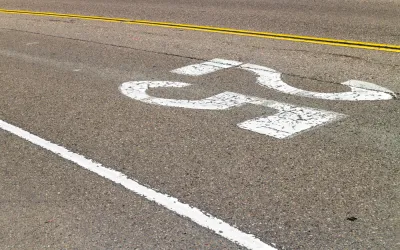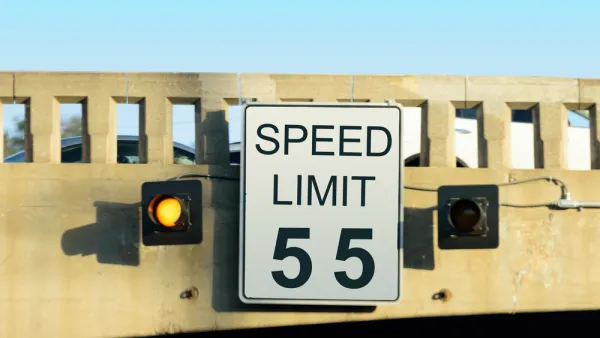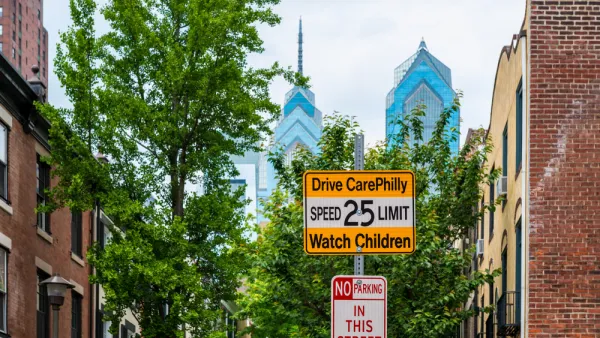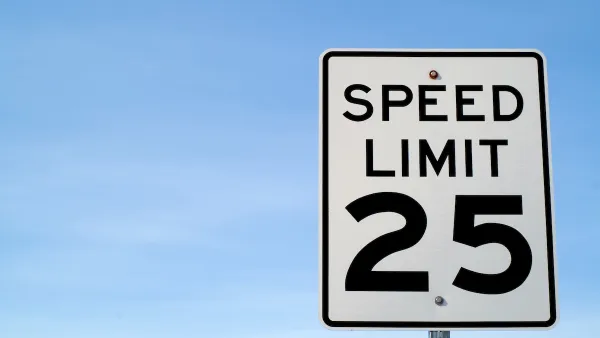Business Insider offers a platform for an argument favored by the National Motorists Association and a particularly vocal Michigan state police officer: that speed limits are too slow to be safe.

An article by Alex Mayyasi makes the case that the system by which the United States regulates the speed of vehicles is irrational and unsafe. That is, as the headline of the article states, "There's convincing evidence that speed limits are way too low."
Mayyasi cites Lieutenant Gary Megge of the Michigan State Police as a leading advocate in favor of higher speed limits. Lt. Megge's argument centers on the 85th percentile rule, which traffic engineers are supposed to use to determine speed limits, though speed limits are often set below that level. Thus, according to Lt. Megge, most drivers speed. In his own words, Lt. Megge describes why he thinks that's wrong:
“We all speed, yet months and months usually pass between us seeing a crash,” Lt. Megge tells us when we call to discuss speed limits. “That tells me that most of us are adequate, safe, reasonable drivers. Speeding and traffic safety have a small correlation.”
Going a step further, Lt. Megge believes that raising speed limits would make roads safer by putting an end to the tacit understanding that the speed limit is set too low. Mayyasi explains: "With higher speed limits, Megge says, police officers could focus their resources on what really matters: drunk drivers, people who don’t wear seat belts, drivers who run red lights, and, most importantly, the smaller number of drivers who actually speed at an unreasonable rate." Megge also says that the only way to lower speeds is through engineering choices: "It’s more expensive, but unlike changing the number on a sign, it’s effective," paraphrases Mayyasi.
FULL STORY: There's convincing evidence that speed limits are way too low

Analysis: Cybertruck Fatality Rate Far Exceeds That of Ford Pinto
The Tesla Cybertruck was recalled seven times last year.

National Parks Layoffs Will Cause Communities to Lose Billions
Thousands of essential park workers were laid off this week, just before the busy spring break season.

Retro-silient?: America’s First “Eco-burb,” The Woodlands Turns 50
A master-planned community north of Houston offers lessons on green infrastructure and resilient design, but falls short of its founder’s lofty affordability and walkability goals.

Test News Post 1
This is a summary

Analysis: Cybertruck Fatality Rate Far Exceeds That of Ford Pinto
The Tesla Cybertruck was recalled seven times last year.

Test News Headline 46
Test for the image on the front page.
Urban Design for Planners 1: Software Tools
This six-course series explores essential urban design concepts using open source software and equips planners with the tools they need to participate fully in the urban design process.
Planning for Universal Design
Learn the tools for implementing Universal Design in planning regulations.
EMC Planning Group, Inc.
Planetizen
Planetizen
Mpact (formerly Rail~Volution)
Great Falls Development Authority, Inc.
HUDs Office of Policy Development and Research
NYU Wagner Graduate School of Public Service




























